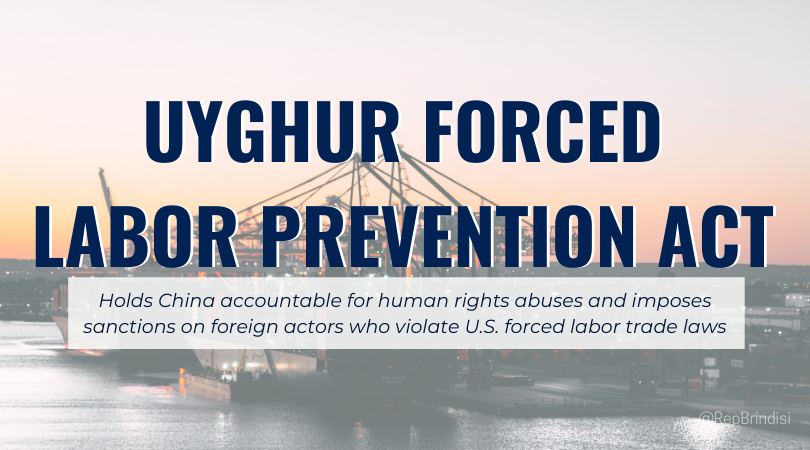The Centre for China Studies (CCS) has urged the U.S. Government to abolish the sanctions placed on China’s Xinjiang autonomous region because it posed danger to Africa’s economy.
CCS Director, Charles Onunaiju, made the call in Abuja on Monday during a roundtable on the recent signing into law of the Uyghur Forced Labour Prevention Act by the U.S.
The News Agency of Nigeria (NAN) reports that on Dec. 23, 2021, U.S President Joe Biden, signed into law the Uyghur Forced Labour Prevention Act.
The bill is to ensure that goods made by forced labour in the Xinjiang Uyghur Autonomous region of the People’s Republic of China does not enter the U.S. markets.
Onunaiju said that the U.S. move disregarded the position of the multilateral systems.
Onunaiju, however, urged African governments to join the cause in calling for the abrogation of the sanctions, explaining that the disruption of supply chain from the region would impact negatively on Africa’s economy.
He said that as a research centre with good knowledge on the Chinese System, it had gathered that the allegations of forced labour on the Uyghur people by China was far from reality,
He said that since the 18th National Congress of the Communist Party of China and emergence of its central committee with President Xi Jinping, it entrenched the principles which guarantees all-inclusive human rights and freedom.
“The Xinjiang autonomous region is a special region in China where you have several minority groups, including the Uyghur people who are mostly Muslims.
“The United States have been alleging that the Chinese authority are forcing the Uyghur people into labour and this flies in the face of the reality.
“And the reality is that 1.4 billion people have been taken out of poverty including the Uyghur people and the implication of this is that enterprises in Xinjiang have been backlisted,” he said.
The CCS director said that the people will not be able to export their goods, they are going to be sanctioned.
“The implication is that the global supply chain to which these companies are integrated will be disrupted by this action and this supply chain run around the world, including Africa and Nigeria.
“The disruption of the global support chain by targeting these enterprises will have some effects on Africa, on Nigeria. But the implication is that it is going to stoke international tension.
“We say the situation in Xinjiang is far from the truth. This people have access to quality jobs, they have almost created jobs for everybody, people have rights to practice their religion.
“In Xinjiang, the Uyghur Muslims have 25,000 mosques in its region more than you have in the whole of the United States. It is not true that they are forced to become communist,” Onunaiju said.
He further said that the U.S. interference in the domestic affairs of other countries was not healthy for the emerging multilateral system.
The director noted that the right thing for the U.S. to have done was to channel its concerns through the right bodies and the multilateral systems to act upon.
“If you develop a tradition of one country interfering in other people’s affairs, today it is China, tomorrow it can be Nigeria, it can be Ghana, it can be any other country in the world.
“And that is not healthy for the emerging multilateral system, it is not healthy that nations should bypass the main centre piece of international intercourse which is the United Nations to take unilateral measures.
“The United States have enough on its hands, it should address the question of native Americans who are living in reserved areas, these are challenges.
“We have seen the George Floyd killing, the continuous killings of black people, continuous marginalisation of black people,” he said.
Onunaiju said that these were all the challenges people think the U.S should concern themselves with and if there are any issues they have, there are avenues within the U.N system to channel them.
He said that there were the International Labour Organisation, International Human Rights Council and all other mechanisms in the UN system to address the issues.
